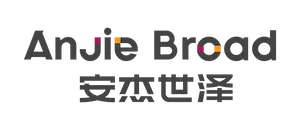Yunnan Yingding Bio-energy Co., Ltd. ("Yingding") is anabio-energy manufacturer. In the last years, Yingding claimed that Sinopec and the Yunnan branch of Sinopec's ("Sinopec Yunnan Branch") trading company had abused their market dominant position by refusing to incorporate the biodiesel they produced from waste cooking oil into Sinopec's distribution system, without justifiable reasons. The lawsuit was filed with Kunming Intermediate People's Court ("Kunming Court ")in China's Yunnan province.
In the first instance ruling, Kunming Intermediate People's Court ("Kunming Court") ruled against Sinopec, holding that the Yunnan branch of Sinopec's trading company was obligated to purchase and distribute the biofuel made by Yingding and abused its dominance in the sales market of refined oil by refusing to purchase the biofuel made by Yingding without justifiable reasons.
In the second instance ruling, Yunnan High People's Court ("Yunnan Court") reversed the first instance ruling and remanded the case on account of unclear facts and procedural errors. Currently, the case is pending.
The First Trial
The lawsuit was filed before the Kunming Court in January 2014. Yingding claimed that Sinopec and Sinopec Yunnan Branch had failed to fulfil their obligations stipulated in the Renewable Energy Law and had abused their market dominance in sales market of refined oil by refusing to deal with Yingding without justifiable reasons.
Sinopec and Sinopec Yunnan Branch mainly explained four reasons for why they rejected Yingding's biofuel. Firstly, Yingding had failed to prove that the biofuel complied with the relevant national standard and was safe to use. Secondly, Yingding had failed to provide complete trading terms. Thirdly, the laws and regulations regarding biofuel were incomplete; the authorized refined oil sales companies were obligated to purchase biofuel from the biofuel manufacturers if it met certain quality standards, but there was a vacancy regarding how to reach the end consumers from the sales companies.
On 8 December 2014, the Kunming Intermediate People's Court ruled that Sinopec Yunnan Branch bore a legal obligation to purchase and distribute the biofuel made by Yingding and abused its market dominance in refined oil market by refusing without any justifiable reasons to purchase the biofuel made by Yingding. The court ordered Sinopec Yunnan Branch to incorporate the biofuel produced by Yingding into its distribution network within 30 days. Both Yingding and Sinopec filed appeals to the Yunnan High People's Court.
The Appellate Trial
The appeal hearing was held on 22 April 2015 in Yunnan Court. Sinopec submitted 23 new pieces of evidence and introduced two expert witnesses in a bid to overturn several key elements in the first-instance ruling by Kunming Court.
In terms of the determination of the relevant market and the market dominance, Sinopec argued that the relevant market in this case was for adipic acid monomethyl ester ("AAME"), the main ingredient of a biofuel additive known as BD100. Yingding's main product is BD100, which can be blended with fossil diesel to become biofuel. In the AAME market, Sinopec is a potential buyer instead of a market dominator. In support of this argument, Sinopec presented an expert witness—Gong Jiong, a professor of economics at Beijing's University of International Business and Economics, who testified that AAME should be defined as the relevant product market on the basis of an economic analysis.
However, Yingding insisted that the first-instance ruling was correct in naming the sales market of refined oil as the relevant market and submitted new evidence: an article on Sinopec's website that claimed it had a 67% market share in Yunnan, to help establish the claim that Sinopec had market dominance.
Another main dispute was whether Yingding's biofuel product met national standards, which would make it mandatory for Sinopec to purchase under China's Renewable Energy Law. The law stipulates that biofuel producers must sell their products first to an authorized refined oil sales company and the sales companies are obliged to buy the fuel if it meets certain quality standards. In order to test the quality, Sinopec introduced the second expert witness, Lin Jianmin, a leading author of China's national biofuel standard. Lin Jianmin pointed out that there are currently quality hazards in the country's biofuel technology,which gives Sinopec a justifiable reason not to dealwith Yingding. Moreover, Sinopec presented some precedents in which consumers had complained about the biofuel quality and also claimed that China didn't have a sound regulatory framework to support biofuel production, neither in testing nor in sales.
Nevertheless, to refute this point, Yingding referred to an earlier test in co-operation with Sinopec in 2011, where selected buses in Kunming used biofuel blended by Sinopec using BD100 produced by Yingding.
On August 13 2015, Yunnan High People's Court reversed the first instance ruling and remanded the case on account of unclear facts and procedural errors, and now this case is pending. In the written appellate ruling, Yunnan High People's Court did not provide any details regarding its reasoning.
Key Issues of the Case
Is there any competition between Yingding and Sinopec?
According to Chinese Anti-monoply Law ("AML"), the behaviour could be determined as abuse of market dominance only when the purposeof the dominator is to eliminate or restrict competition. In this case, the product of Yingding is biofuel while Sinopec does not engage in the business of biofuel. From this perspective, Yingding and Sinopec are not competitors. Thus, it is not necessaryand not reasonable for Sinopec to eliminate or restrict the competition from Yingding.
Relevant Market
The definition of the relevant market is a prerequisite to determine whether competition exists and whether the AML is applicable. In accordance with the Judicial Interpretation of Antitrust civil litigation, the plaintiff shall take the responsibility to prove the defendant's dominance in the relevant market. Also, the methods of defining the relevant market are stipulated in the Guidelines on RelevantMarket Definition ("Guidelines"). However, both Yingding and Kunming Intermediate People's Court defined the relevant market as the sales market of refined oil without sufficient antitrust analysis; none of the methods in the Guidelines were used. Therefore, the definition of the relevant market remains arguable and needs to be sufficiently analysed in the upcoming retrial.
Justifiable Reasons
The abuse of market dominance includes the behaviour of refusing to dealwithout justifiable reasons according to the AML, but in the first instance ruling, justifiable reasons were not investigated by the court. During the appellate trial, the expert witness, introduced by Sinopec, claimed that there were quality hazards in the country's biofuel technology and this was a justifiable reason to refuse to dealwith Yingding. Even though the first instance court and the appellate court did not reason the justifiable reason, it should be discussed and investigated further during the retrial.
AML or Renewable Energy Law?
The claims of Yingding were based on both the AML and the Renewable Energy Law ("REL") and the first instance ruling referred to both the AML and the REL as well. It seems that the laws the first instance court referred to were comprehensive, but in fact the reasoning was not clear and logical. In the first instance ruling, some disputes regarding the AML were reviewed, but all the orders were not based on the AML. Specifically, the first instance court ordered the Sinopec Yunnan Branch to incorporate the biofuel produced by Yingding into its distribution network based on the REL and dismissed the other claims. That the orders were not on account of reasoning is illogical. It is anticipated that during the retrial, the application of the laws will be clearer.
Conclusions
A lot of issues have not been clearly analysed by the courts, such as the relevant market and the justifiable reasons. Since the case is remanded, the above-mentioned issues are expected to be resolved in the retrial.If the court ruled against Sinopec, more antitrust lawsuits against state-owned companymightbe triggered.The courts may become an increasingly important battleground for antitrust disputes in the near future.
Footnotes
* The details of the caseare available at: http://news.xinhuanet.com/fortune/2014-12/17/c_1113680039.htm, http://www.court.gov.cn/zgcpwsw/content/content?DocID=9e71db51-6ff6-4d2c-8af6-8eacf023ebde&KeyWord=%E4%BA%91%E5%8D%97%E7%9B%88%E9%BC%8E|%E4%B8%AD%E7%9F%B3%E5%8C%96, http://news.xinhuanet.com/energy/2015-04/22/c_127721575.htm, http://www.nbd.com.cn/articles/2015-04-23/911348.html, last visited on December 17, 2015.
The content of this article is intended to provide a general guide to the subject matter. Specialist advice should be sought about your specific circumstances.


